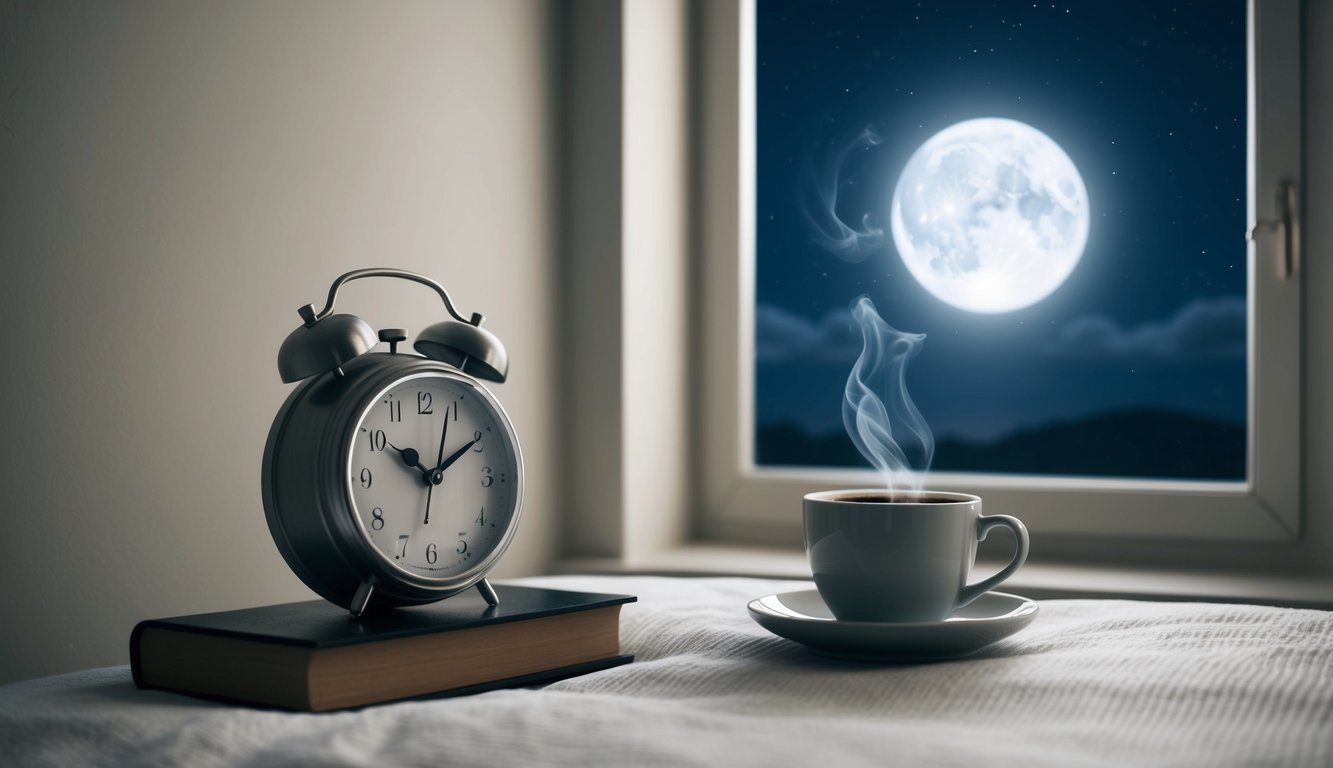PsychNewsDaily Publishers
100 Summit Drive
Burlington, MA, 01803
Telephone: (320) 349-2484
PsychNewsDaily Publishers
100 Summit Drive
Burlington, MA, 01803
Telephone: (320) 349-2484
A study found that 100 mg of caffeine has minimal impact on sleep, while 400 mg can cause significant disturbances, particularly when consumed close to bedtime.


A recent study published in the journal Sleep examines the impact of caffeine intake on sleep patterns. The findings indicate that consuming 100 mg of caffeine, equivalent to about one cup of coffee, can occur as late as four hours before bedtime without significantly impairing sleep quality. In contrast, a higher dose of 400 mg, roughly four cups of coffee, can lead to noticeable sleep disturbances when taken up to 12 hours prior to sleep. Notably, many people find it difficult to recognize the sleep issues caused by caffeine, particularly when consumed earlier in the day.
Caffeine is commonly used as a stimulant to boost alertness and reduce fatigue. While previous research has acknowledged caffeine’s overall influence on sleep, it has not sufficiently explored the specific effects of dosage and timing related to sleep disruptions. This current study aims to clarify this relationship by investigating how various amounts of caffeine consumed at different intervals before sleep affect rest.
With around 40% of the global population experiencing sleep insufficiency and relying more on caffeine to fight fatigue, it is essential to understand the optimal timing and dosage to minimize sleep disturbances.
The study’s motivation stemmed from the lack of clear guidelines regarding caffeine consumption and sleep. With approximately 80% of the population using caffeine regularly, it could contribute to the growing rates of sleep issues. By examining the timing and quantities of caffeine’s impact on sleep, researchers hope to offer practical recommendations for mitigating caffeine’s negative effects.
The research involved a double-blind, placebo-controlled, randomized trial with 23 healthy male participants aged 18 to 40. To qualify, people had to be moderate caffeine users (under 300 mg daily) and free from medical conditions or habits that could affect sleep. Female participants were excluded to avoid confounding variables related to hormonal changes.
Over a 21-day period, each person underwent seven different testing conditions, consuming either 100 mg or 400 mg of caffeine, or a placebo, at intervals of 12, 8, or 4 hours before their regular bedtime. Participants followed a consistent sleep routine monitored through wearable devices and sleep diaries. Caffeine was given in capsule form, with saliva samples taken to confirm caffeine levels. Sleep data was assessed using both objective measures from a validated monitoring device and subjective reports on sleep quality and duration.
The results revealed a clear dose-dependent relationship, where higher doses of caffeine corresponded with greater sleep disruptions. The 100 mg dose did not significantly affect sleep, regardless of whether it was taken four hours before bedtime. Conversely, consuming 400 mg resulted in sleep disturbances—even when taken 12 hours prior to sleep.
When consumed within 12 hours of bedtime, the 400 mg dose led to marked changes in sleep patterns, particularly a reduction in deep, restorative sleep (non-REM stage 3). This timing was linked to slightly diminished total sleep duration and increased instances of waking during the night.
These negative effects intensified when caffeine was ingested eight hours before sleep, causing a 7% drop in sleep efficiency, which measures the time spent asleep while in bed. At this time frame, people experienced more frequent awakenings and reduced deep sleep duration.
The most significant disturbances occurred when 400 mg of caffeine was consumed just four hours before sleep. This led to an average increase of 14 minutes in the time it took to fall asleep, a decrease of about 50 minutes in total sleep time, and a stark reduction in deep sleep.
Sleep fragmentation increased, resulting in more frequent awakenings and a larger proportion of lighter sleep stages. Subjective evaluations from participants supported these findings; they reported feeling less rested and indicated poorer sleep quality after consuming 400 mg of caffeine four hours before bed.
Interestingly, people struggled to recognize the extent of sleep disruptions caused by caffeine, particularly when it was consumed eight or 12 hours earlier. Despite objective assessments showing plenty of nighttime awakenings and declines in deep sleep, perceptions of sleep quality did not consistently align with these changes. This gap between objective measurements and perceived sleep quality highlights the challenges people face in acknowledging caffeine’s disruptive effects, especially with earlier consumption.
The study also examined potential genetic factors related to caffeine metabolism and sensitivity, but the sample size was too small for conclusive results. Future research with larger groups could further clarify how genetic traits influence individual responses to caffeine.
The overall goal is to strengthen the evidence base to provide straightforward, research-backed recommendations for reducing caffeine’s negative impact on sleep.
“`